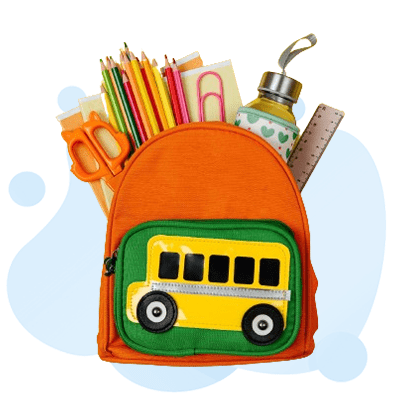Kindergarten Readiness Assessment (KRA): What to Know

The Kindergarten Readiness Assessment (KRA) is a critical tool designed to evaluate a child’s readiness for kindergarten. This assessment helps educators, parents, and guardians understand the child’s developmental progress and areas needing support. By offering a comprehensive overview of a child’s skills and abilities, the KRA supports a smoother transition into the formal education system.
Free KRA Practice Test Online
Key Takeaways
- The Kindergarten Readiness Assessment (KRA) evaluates a child’s developmental and pre-academic skills to determine their readiness for kindergarten.
- A comprehensive readiness checklist includes cognitive, motor, language, social, and emotional skills.
- Understanding how kindergarteners learn and develop helps in tailoring the KRA to meet each child’s needs.
- Kindergarten assessment tests evaluate academic, physical, social, and behavioral skills to provide a well-rounded view of a child’s readiness.
- Knowledge of child development stages and pre-academic skills is essential for creating an effective assessment.

Kindergarten Readiness Checklist
A Kindergarten Readiness Checklist is an essential component of the KRA, aimed at gauging a child’s preparedness for school. This checklist typically includes various developmental and pre-academic skills that are crucial for a successful start in kindergarten. Here are some key areas often covered:
- Cognitive Skills: Ability to recognize numbers, letters, shapes, and colors.
- Motor Skills: Proficiency in fine and gross motor skills, such as holding a pencil or using scissors.
- Language Skills: Vocabulary, sentence formation, and comprehension abilities.
- Social Skills: Interaction with peers, sharing, and following instructions.
- Emotional Skills: Self-regulation, expression of feelings, and coping mechanisms.
This checklist helps identify strengths and areas where a child may need additional support, enabling parents and teachers to address these needs effectively.
Kindergarteners’ Learning
Understanding how kindergarteners learn is crucial for assessing their readiness. At this stage, children are rapidly developing their cognitive, social, and emotional skills. Key aspects of their learning process include:
- Exploration and Curiosity: Young children learn through play and exploration. They are naturally curious and use hands-on experiences to understand their environment.
- Social Interaction: Interaction with peers helps develop social skills such as sharing, cooperation, and communication. Group activities and playtime are essential for social learning.
- Language Development: Early language skills are developed through conversations, storytelling, and reading. Children expand their vocabulary and learn to express their thoughts and needs.
- Problem-Solving: Kindergarteners begin to develop problem-solving skills by engaging in activities that require critical thinking and decision-making.
Recognizing these learning processes helps tailor the KRA to better evaluate and support each child’s unique developmental needs.
Kindergarten Assessment Test
The Kindergarten Assessment Test is a standardized tool used to evaluate a child’s readiness for kindergarten. This assessment often includes various components to gauge different areas of development:
- Academic Skills: Tests may include recognizing letters and numbers, basic counting, and understanding simple instructions.
- Physical Development: Assessments often check for fine and gross motor skills, such as the ability to cut with scissors or hold a pencil correctly.
- Social and Emotional Skills: The test may include observations of how a child interacts with others and handles emotional situations.
- Behavioral Skills: Teachers and assessors look at a child’s behavior in structured settings, including their ability to follow directions and participate in group activities.
Child Development
Child development is a broad field encompassing various aspects of a child’s growth. Understanding these developmental stages is crucial for accurately assessing kindergarten readiness:
- Physical Development: This includes growth in height and weight, as well as the development of fine and gross motor skills.
- Cognitive Development: Cognitive skills involve learning, memory, problem-solving, and the ability to understand and process information.
- Social Development: Social skills include the ability to interact with peers, develop friendships, and understand social norms.
- Emotional Development: Emotional growth involves understanding and managing emotions, developing empathy, and building self-esteem.
A comprehensive understanding of these developmental areas helps in creating an effective Kindergarten Readiness Assessment that addresses the needs of each child.

Pre-Academic Skills
Pre-academic skills are foundational abilities that support learning in formal education settings. These skills are essential for kindergarten success and include:
- Literacy Skills: Recognizing letters, understanding basic phonics, and developing early reading skills.
- Numeracy Skills: Counting, recognizing numbers, and understanding basic mathematical concepts.
- Attention and Focus: The ability to concentrate on tasks, follow instructions, and complete activities.
- Self-Help Skills: Basic self-care tasks such as dressing, using the bathroom independently, and managing personal belongings.
Assessing these pre-academic skills helps identify areas where children may need additional support before starting kindergarten.
Conclusion
The Kindergarten Readiness Assessment (KRA) is a vital tool for ensuring that children are well-prepared for their transition into formal education. By assessing various developmental and pre-academic skills, the KRA provides valuable insights into each child’s readiness and areas that may need further support. Understanding the different aspects of the KRA, including the readiness checklist, learning processes, assessment tests, child development, and pre-academic skills, helps educators and parents support children’s successful entry into kindergarten.
FAQs
What is the purpose of the Kindergarten Readiness Assessment (KRA)?
The KRA evaluates a child’s developmental and pre-academic skills to determine their readiness for kindergarten.
How can parents prepare their child for the KRA?
Parents can support their child’s readiness by focusing on developing cognitive, motor, language, social, and emotional skills through everyday activities and interactions.
What areas are assessed in the Kindergarten Assessment Test?
The test typically includes academic skills, physical development, social and emotional skills, and behavioral skills.
Why is understanding child development important for the KRA?
Understanding child development helps in creating an effective assessment that addresses each child’s unique developmental needs and supports their transition to kindergarten.